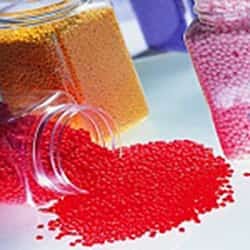IUPAC Name
Polyvinyl Chloride Resin
Cas Number
9002-86-2
HS Code
3904.21.10
Formula
(C2H3Cl)n
Appearance
Colorless Liquid
Common Names
Chloroethylene Polymer
Packaging
680 @ 25kg PP bag, 17 MT/20FCL without pallet
Polyvinyl chloride resin, abbreviated as PVC resin, is a white powder used to produce plastics and rubbers. It is used to produce thermoplastic resins that are more versatile than other existing thermoplastic materials in processing and applications. This polymer can be considered as a unique raw material that can be made into a wide range of products, from soft and soft to light and rigid. In addition, PVC resin has good chemical stability, is corrosion-resistant and water resistant. It has good solubility, good electrical insulation, thermoplasticity and membrane forming ability.
PVC resins are manufactured by different kinds of polymerization such as polymers, solutions, suspensions and emulsion polymerization, vinyl chloride monomers, free radical initiators such as peroxide catalysts, aqueous suspensions or emulsions. Then mix with plasticizers, stabilizers, and pigments. The resulting resin is then fabricated by various techniques, such as calendaring, molding or extrusion into the selected flexible product. If the product requires high impact resistance, polyvinyl chloride should be mixed with a small amount of rubber synthetic polymer or chlorine or vinyl acetate.
PVC resin transparent film can be used in greenhouses, plastic greenhouses and plastic film. It can also be used for bags, raincoats, tablecloths, curtains, inflatable toys, etc. It can also be used to make hoses, cables, wires, plastic sandals, shoes, slippers, toys, auto accessories, etc.
PVC resin can be used to make leather luggage, leather bags, book covers, sofas and car seats, as well as floor covering and floor materials for buildings.
